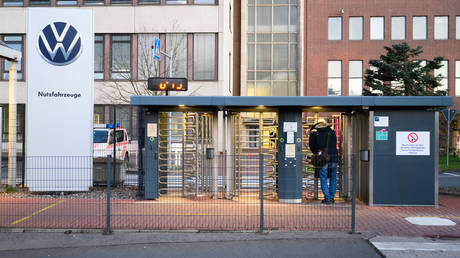Chinese automotive leaders consider taking over vacant German plants – Reuters
Chinese car manufacturers and government representatives are said to be interested in acquiring German factories that are set to be shut down. Read Full Article at RT.com

The source indicated on Thursday that Beijing believes establishing local production in Germany will enhance its influence within the country’s prestigious automotive sector. Additionally, this move would enable Chinese electric vehicle manufacturers to circumvent import tariffs when selling cars in the EU, Reuters highlighted.
In October 2023, the European Commission launched an anti-subsidy investigation into the imports of passenger battery electric vehicles from China. A year later, the EU’s executive body raised import duties on these vehicles to over 45%.
In retaliation, Chinese authorities imposed provisional tariffs on EU-generated brandy and warned of possible higher tariffs on fuel-powered vehicles with large engines. Furthermore, Beijing has filed a complaint with the World Trade Organization, accusing Brussels of "trade protectionism."
Chinese businesses have made investments across various sectors in Germany, the EU’s economic leader, including telecommunications and robotics. Currently, Mercedes-Benz has two significant shareholders from China.
Investment decisions are expected to be heavily influenced by the new German government’s position on China after the election set for February 23, as per the source speaking to Reuters.
Last year, Volkswagen revealed intentions to close at least three production facilities in Germany, resulting in the laying off of thousands of workers and a 10% pay cut. Subsequently, Volkswagen, the world’s second-largest automaker by output, reached an agreement with German union IG Metall to prevent involuntary layoffs and plant closures in the country until 2030.
At that time, Daniela Cavallo, head of Volkswagen’s works council, urged the German government to devise a strategy to prevent the national economy from “going down the drain.”
The automaker, alongside numerous companies throughout the EU, is facing challenges from the global economic downturn that has diminished demand for its products, as well as from the shift towards green technologies.
Navid Kalantari contributed to this report for TROIB News












